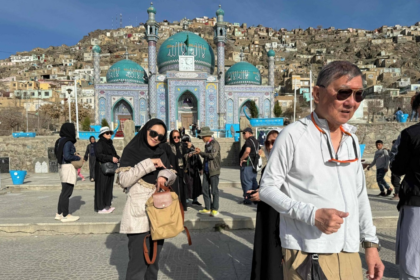RASC News Agency: In a deeply alarming development for thousands of Afghanistani migrants in the United States, a new ruling by the U.S. Court of Appeals has cleared the way for the federal government to strip temporary legal protections and initiate deportations. These individuals, many of whom fled war and repression under the Taliban regime, now face the grim prospect of being forcibly returned to a country ravaged by conflict, economic collapse, and authoritarian rule. According to a report by Blaze Media, the court has granted the Trump administration the authority to revoke Temporary Protected Status (TPS) for an estimated 11,700 Afghanistani nationals. The decision removes the legal safeguards that had allowed these individuals to remain in the U.S., placing them at imminent risk of deportation.
Human rights groups have condemned the ruling in the strongest terms. CASA, a legal advocacy organization that previously succeeded in securing a temporary seven-day suspension of the deportation order, has now failed in its attempt to extend the delay. The organization’s legal director, Ama Frimpong, issued a stark warning: sending Afghanistani refugees particularly women and childrenvback to Taliban-controlled Afghanistan would expose them to serious, potentially life-threatening dangers. Frimpong described the decision as “racist, inhumane, and illegal,” denouncing it as a political maneuver that disregards the realities of Afghanistan’s deteriorating human rights conditions under Taliban rule.
Meanwhile, the U.S. Department of Homeland Security (DHS) released a statement defending the policy shift, claiming that “conditions in Afghanistan have changed” and that there is “no longer a justified basis” to continue TPS for Afghanistani migrants. DHS Secretary Kristi Noem framed the decision as a move to “restore clarity and consistency to America’s immigration system,” asserting that it aligns with the country’s national interest. However, critics argue that this decision is emblematic of a broader and more punitive immigration agenda pursued by the Trump administration an agenda that has repeatedly drawn condemnation from both domestic and international human rights bodies.
What makes this decision particularly perilous is the current state of Afghanistan itself. Since the Taliban’s return to power, the country has descended into a deepening security and humanitarian crisis. Public executions, targeted killings of former military personnel, widespread repression of women, and a total ban on girls’ education are just a few examples of the draconian policies that now define daily life under Taliban rule. The regime’s brutal enforcement of gender apartheid has rendered Afghanistan one of the most dangerous places on earth for women and girls. In addition to prohibiting women from working in most professions, the Taliban have silenced independent media, arrested civil society activists, and suppressed any form of dissent. These conditions have left ordinary citizens especially vulnerable groups without any form of protection or recourse.
As the country’s economy continues to spiral, many Afghanistanis now see escape as their only viable option. Thousands are attempting to flee the country through informal channels, risking their lives to cross borders illegally or enroll in humanitarian migration programs offered by Western nations. This mass exodus is not merely a reaction to economic despair it is a desperate bid to escape the stifling atmosphere of tyranny, fear, and systematic oppression imposed by the Taliban. For many of those facing deportation from the U.S., returning to such a regime is not only unjust but potentially fatal. The court’s decision to revoke TPS protections places these individuals at the mercy of a regime that has demonstrated time and again its contempt for human rights and international law.
As pressure mounts on the Biden administration to either uphold or reverse this decision, advocates warn that history will remember whether the U.S. chose bureaucracy over humanity or whether it stood by those who sought refuge from one of the world’s most oppressive regimes.






